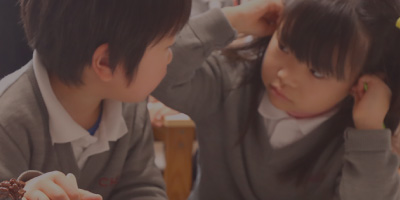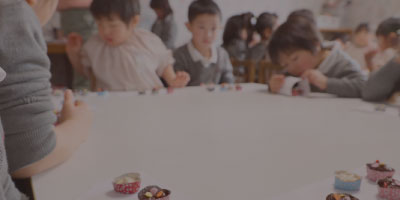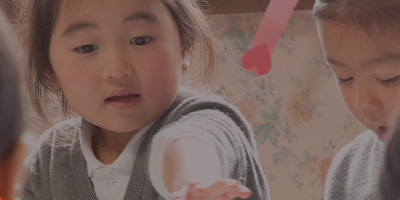
ブログ&お知らせ
News
2023.11.20
CHESプリ・クラス食べ物へ感謝
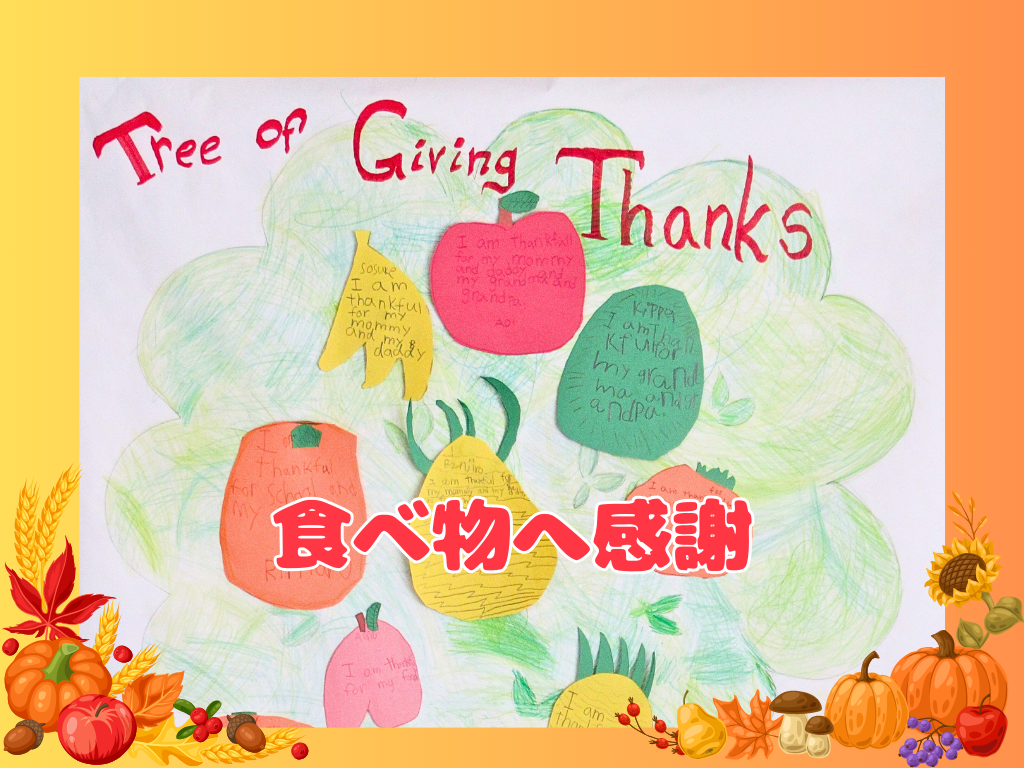
急に寒くなってきましたが、引き続き「食べ物」のTopicでクラスは盛り上がっています。「食べ物」は最も身近な話題だけに、みんなの興味もおのずと引き付けられるようです。しかも「Thanksgiving Day」が近づいてきているのでなおさらです。「今年のCookingはなにかなぁ?」。心配しなくても大丈夫。先日CHES Gardenで収穫したサツマイモをみんなで食べましょう😄
One activity we did to practice our phonics as well as different kinds of foods was to organize them into letter groups. We worked together as a team to see how fast we could do it, and with the fewest mistakes.
It took both teamwork and knowledge to pull it off, but soon, they had them all organized! Some were tricky. “Kiwi” and “Cucumber” don’t start with Q, despite sounding like it. They don’t even start with the same letter as each other!
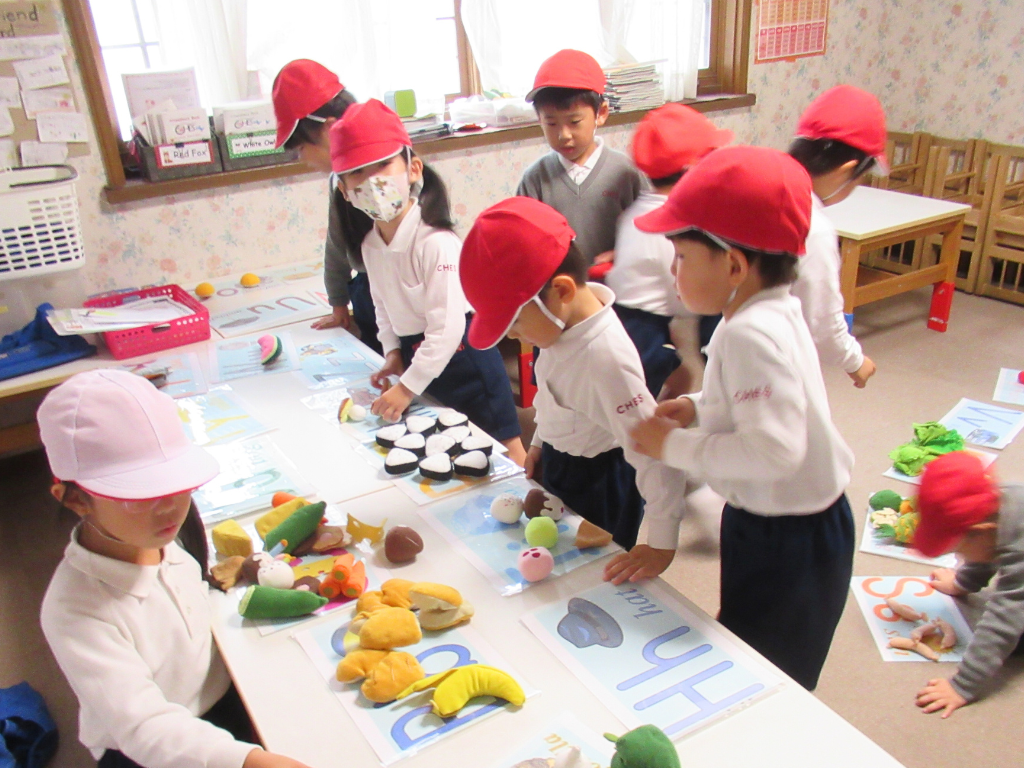
「フォニックス」とさまざまな種類の食べ物の名前を練習するために私たちが行ったアクティビティの 1 つは、食べ物を文字のグループにまとめることでした。チームとして協力して、どれだけ速く、最小限のミスでそれを実行できるかを確認しました。
それをやり遂げるにはチームワークと知識の両方が必要でしたが、すぐにすべてが整理されました。難しいものもありました。 「キウイ」と「キュウリ」は、そのように聞こえますが、「Q」 で始まりません。お互いに同じ文字で始まることさえありません。
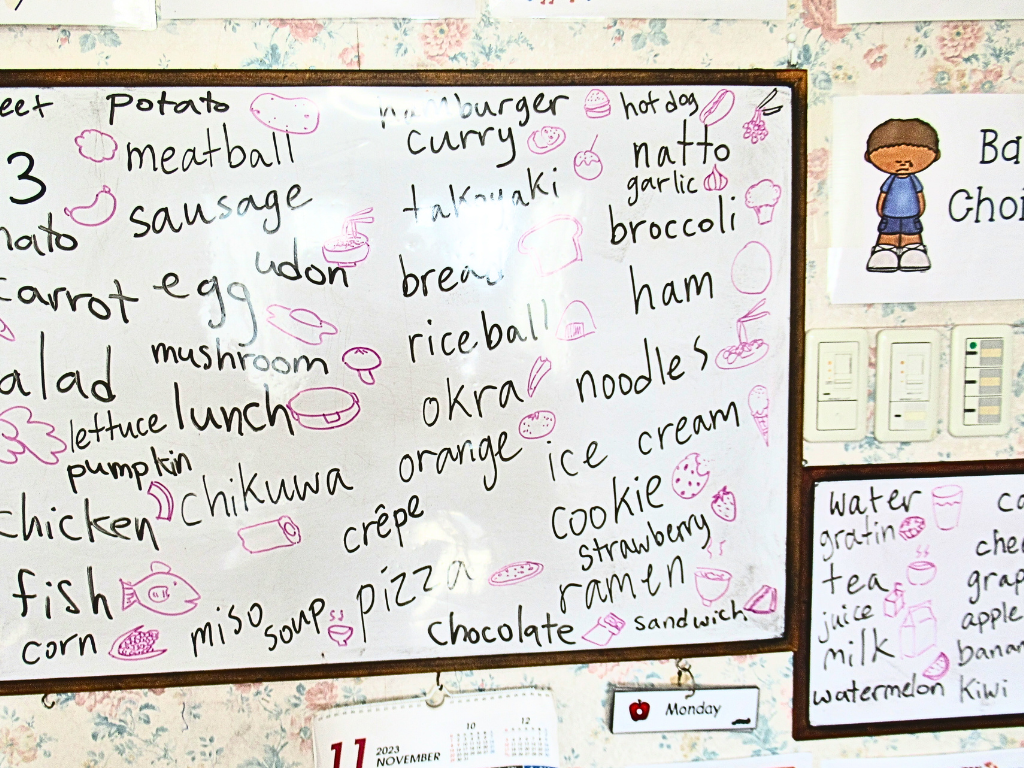
We continued to talk about foods into this week, where we looked closer at our own diets and what foods we eat. We thought about our own personal habits compared to other people. And then we thought about why that might be the case.
We had categories based on frequency. That means, how often did we eat each kind of food? “Always” would be every day, or almost every day. “Rarely” would be almost never. And everything in between! If you find ice cream in your often foods, then that might be something worth thinking about!
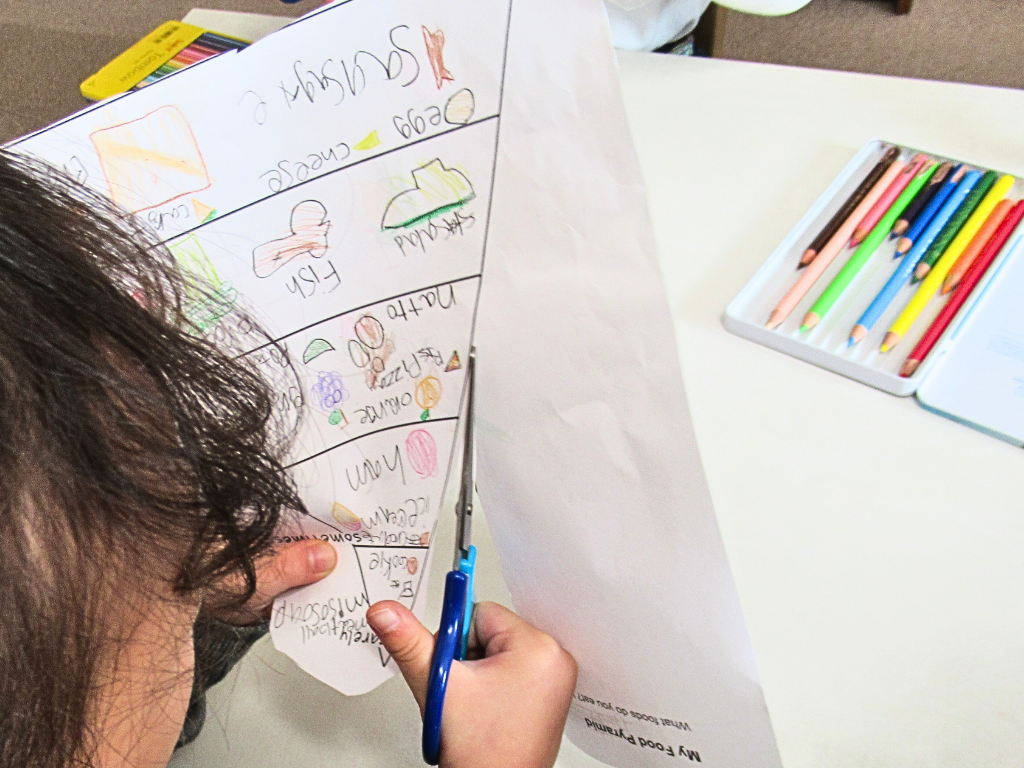
今週も食べ物について話し続け、私たち自身の食生活やどのような食べ物を食べるのかを詳しく調べました。私たちは他の人と比較して自分自身の個人的な習慣について考えました。そして、なぜそうなるのかを考えてみました。
食べる回数によってカテゴリがありました。つまり、それぞれの種類の食べ物をどれくらいの頻度で食べたのでしょうか?「常に」というのは毎日、あるいはほぼ毎日ということになります。 「まれに」というのは、ほとんどありません。そしてその間のすべて!よく食べる食べ物の中にアイスクリームがあるなら、それは考えてみる価値があるかもしれません。
We also talked about why we eat dessert and junk foods, and how our bodies handle those kinds of foods. We talked about ancient humans and why certain eating habits began, a long time ago when we needed to hunt and gather our food.
We are very lucky now that we can get any food, we want just by going to the store. We need to be careful not to eat too much food that won’t be good for us, even if it’s yummy. We need to be thankful for what we have!
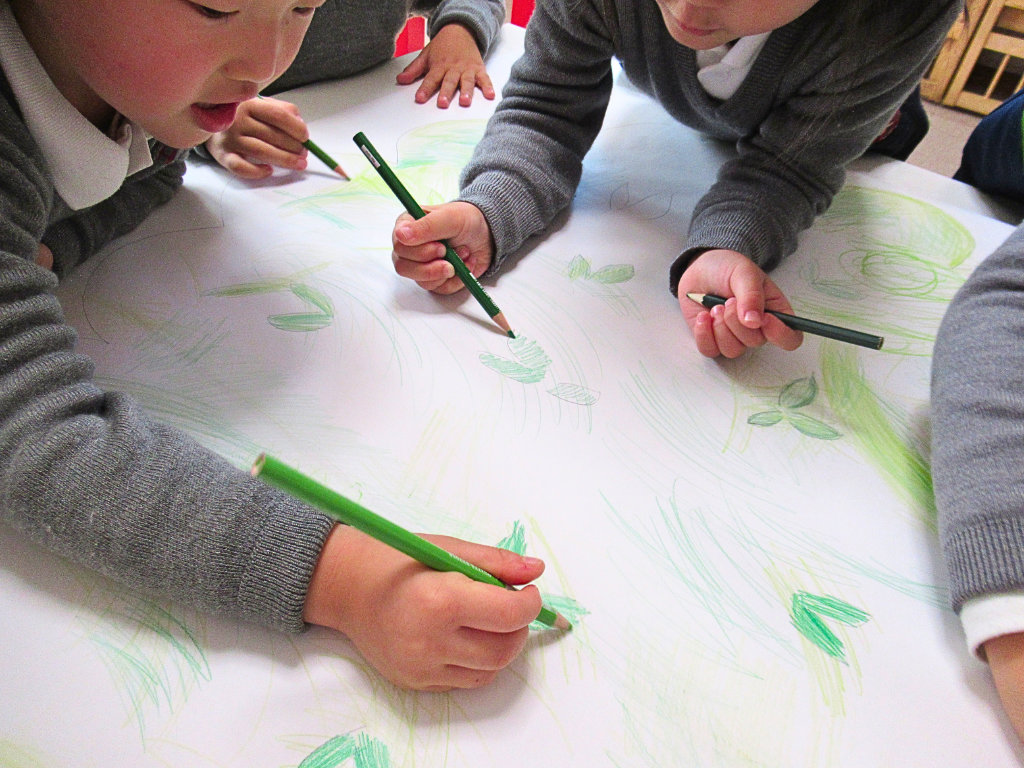
また、なぜ私たちがデザートやジャンクフードを食べるのか、そして私たちの体がそれらの種類の食べ物をどのように処理するのかについても話しました。私たちは古代の人類について、そして、狩猟と食物の収集が必要だった遠い昔に、なぜ特定の食習慣が始まったのかについて話しました。
今は、店に行くだけで欲しい食べ物が手に入るので、私たちはとても幸運です。たとえ美味しくても体に良くないものは食べ過ぎないように注意が必要です。私たちは自分が持っているものに感謝する必要があります。
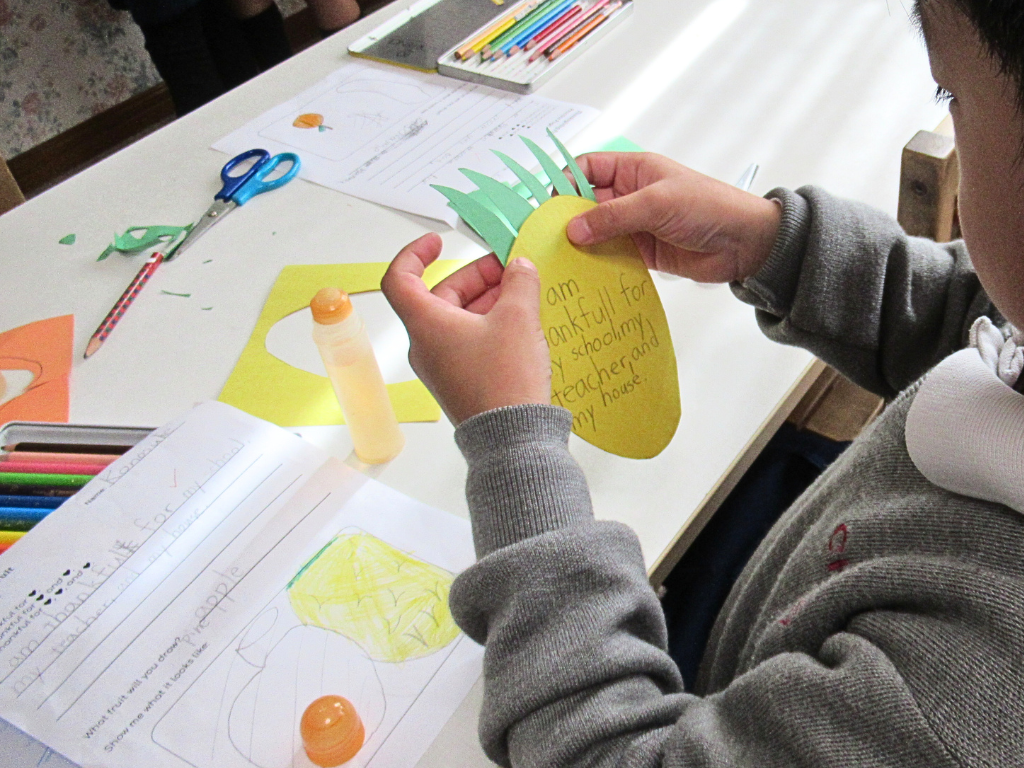
Speaking of, our Thanksgiving celebration is coming up next week. At Thanksgiving, we need to be thankful for everything we have. And that includes food! This year, we got a nice harvest of sweet potatoes, so we will definitely be looking forward to those.
In our class, we began our own Tree of Giving Thanks, where we would put fruits that show what we are thankful for. We began by working together to make the foliage look nice.
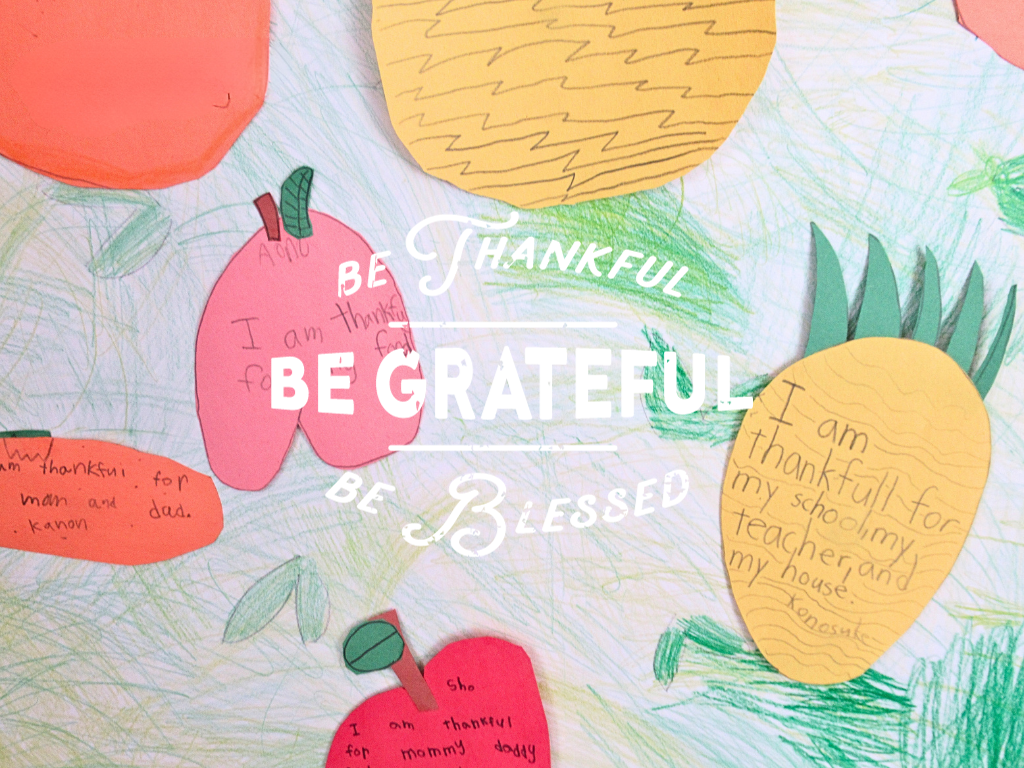
After the tree was up, we made our fruits. We chose whichever kind of food we liked, and decided on our own what we were thankful for. We made sure to practice beforehand, and then made the crafts with our own hands!
In time, we had grown a beautiful tree. The tree will help to remind us about everything we have that we shouldn’t take for granted.
Thank you!
International Preschool CHES
English Teacher Berridge Sean
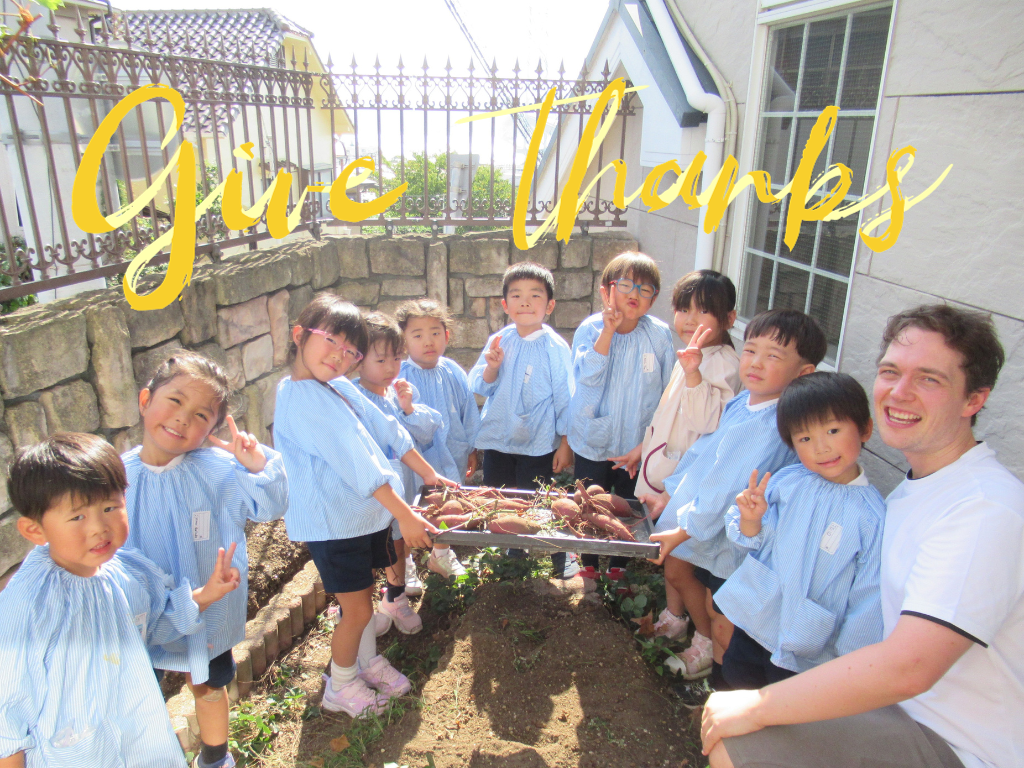
そういえば、来週は感謝祭のお祝いが近づいています。感謝祭では、私たちが持っているすべてのものに感謝する必要があります。そしてそれには食事も含まれます!今年はサツマイモが豊作だったので、とても楽しみにしています。
私たちのクラスでは、私たちが感謝していることを示す果物を植える独自の「感謝の木」を作り始めました。紅葉を美しく見せるために協力して作業を始めました。木が立った後、私たちは果物を作りました。私たちは好きな食べ物を選び、何が感謝されるかを自分たちで決めました。事前に練習して、自分たちの手で作品を作りました!
やがて、私たちは美しい木を育てました。この木は、私たちが持っているすべてのことを、当たり前だと思ってはいけないことを思い出させてくれます。
ありがとうございます!
無料トライアル(体験)受付中です
1歳半からのお子さんの貴重な時間を将来にむけてしっかり活かしてあげたいとお考えのパパ・ママは、ぜひ一度、「無料トライアル」にお越しください。申し込み方法はかんたんです。こちらから、いますぐお申込みください。
資料を送付させていただきますので、施設見学もかねてお子さんと一緒にお気軽にご参加ください。CHESの教室でお会いできるのを楽しみにお待ちしています。



